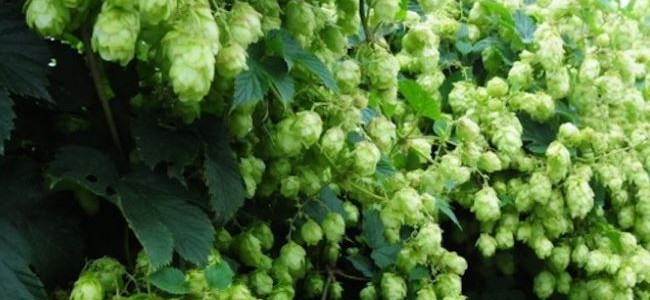Creating new hop varieties takes serious time – here’s Wye
Wye Hops : New Hop Variety Breeding Programme – Slowly slowly catch your new variety….
The breeding of any new plant variety is a science that requires patience. Wherever you look in the world the creation of new plant varieties takes time.
Humulus lupus, to give it it’s latin name, which means wolf of the woods is dioecious which means that the male and female plants are separate.
Hop plants that grow from seeds are therefore unique new plant varieties. And it is this process that is used to create new varieties. But the process takes time – and here’s why…
- Year 1: Create variety Crosses
- Year 2: Raising seeds
- Year 3: First assessment of individual seedlings (based on resin analyses, and aroma assessment)
- Year 4: Mature hop harvesting; yield, plant health and cone shape
- Year 5: Selection of potential varieties and propagation of material for commercialisation
- Year 6: Planting of small plots
- Year 7: Assessment of commercial attributes including suitability for machine harvesting, yield, oil and resin analysis, and disease resistance
- Year 8: Assessment of mature plants for habit and pilot brewing trials
- Year 9: Propagation of materials for planting on farms
- Year 10: Planting on farms
- Year 11: Commercial crop
A hop breeding programme consists of preparing pollen, making controlled crosses, raising seedlings, transferring seedlings to the field, and collecting, drying and pressing cone samples from the seedlings for analysis.
For historic reasons dating back to the early 1900s, in England male hop plants are grown alongside female hop plants. In the breeding programme, the males are not ‘killed’ but used as parents to develop new female varieties like First Gold. Dr Peter Darby, of the British Hops Association, uses the male hop plants mainly for their growth habit characteristics and to provide disease resistance in their female hop plant progeny.
Success stories to date include:
- Rescuing the English hop breeding programme following the closure of the programme at Wye College in 2007
- Successful EU registration of two new hop varieties: Boadicea (granted rights in 2008) – the world’s first aphid resistant variety; and Sovereign (granted EU plant variety rights in 2010)
- Endeavour (selection code 15/2). This variety is currently on farm trial and has had major success in brewing trials with Marstons and St Austell
- Establishment of the national hop collection at Queens Court in Kent. This collection includes over 70 historic English hop varieties from Mathon (1737) through to Sovereign, including Early Bird (1887) and other Golding varieties
- Developing UK-Fuggle varieties with wilt and aphid resistance (on-going)
Future Projects include:
- Hop Aromas with Stand Out: current breeding programme work is exploring wild American aromas and spice aromas.In addition we are revisiting the National Hop Collection every year to seek out old varieties worthy of trialing again today.
- Fuggle is under threat from verticilium wilt and every year acreage diminishes. In 2008, with IBD support, a crossing programme was initiated and in 2012 one selection, 19/6 has been confirmed as having wilt resistance. Initial brewing trials are positive so farm trials are being planned.
- Disease resistant hop varieties to reduce reliance on crop protection
For more information visit the British Hops Association web site: www.britishhops.org.uk


Comments are closed.